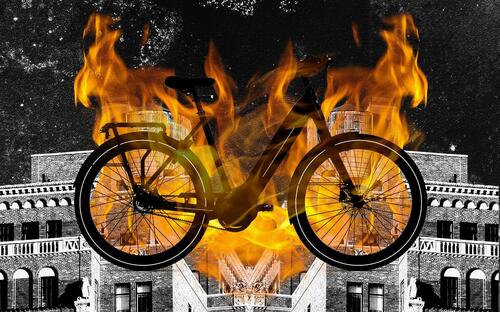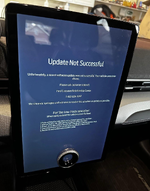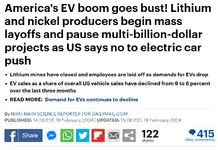Some guy drove an EV car from LA to San Francisco, which supposedly take about 6 hours if driving a gas vehicle. It took him at least 56 hours -- 14 of those hours were wasted on charging his stupidelectricbattery-operated vehicle.
Full text
I love cars, i'm a massive car guy.... and I'm not fan of EV's at all, but it's helpful to remember certain EV's have different battery packs = charge rates and different charge networks available.
Here in NZ, Tesla is growing rapidly because of their supercharger network which means quick rapid charging. When that network is complete many will switch over.
A Tesla can use any charger for the most part, though it's not vice versa for cheaper EV's , which will probably also change in the future.
So many in NZ have purchased Tesla. We are a green country, at least that's what we portray.
t's crazy to me to see the madness of people spending 70k for a car just to save on gas long term. When they could easily have a 20k car and spend 10k on servicing in 5+ years and that would still be excessive. Not to mention if that 20k vehicle ran out of oil, timing chain broken etc...it would still be cheaper to repair than the 20k + you spent let alone 70k on an EV.
We are a small country that means for many people charging overnight at home is no hassle. Like flicking a switch at night. You wake up, you don't need to charge. Then you have incentives from local councils / local govt, meaning people can charge for free at certain times of night - for many people they will use that like getting a free tank of gas each night. This will happen more and more as will fines for regular vehicles like what we're seeing in the U.K.
So it's never as simple as driving from A to B and this took me 50+ hours etc.... This is what Elon talks about (again not an Elon fan) For the majority of people they don't need to do this, it's a daily driver.....and those that do take long trips use various apps and Facebook groups to plan their trip carefully, as they would booking a hotel etc. A charger that's down will be no different to a no vacancy sign in the future.
America is of course a different beast. Y'all are driving nation. To see if it works other than California (?!) remains to be seen and I can't comment on that, this is just to let you know what's coming.
Last edited:

 Photo via TheRealDeal
Photo via TheRealDeal
